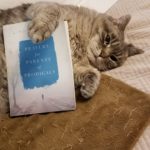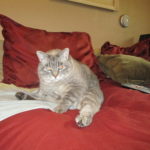
A few years ago, obscure yet devoted writers like me were informed that we had to be a brand. We needed a tag line, as if we were products on TV, and we had to pick one type of thing to write.
Writing Tip for Today: After more than a decade of urging by PR types, are writers still obligated to create their own brand and stick to it? And should they?
Writers as Artists
Writing for publication has long been seen as an art form or at least a craft. Would-be writers study and practice the craft so that their efforts will be publishable. If you’ve been writing seriously for any length of time, you know it’s a steep learning curve that doesn’t come naturally to many. The 20,000 hours of practice to master writing can feel too difficult.
And what should we write about? Most new writers hear, “Write what you know.” Yet most of us aren’t one-note in our lives, and we have a wide range of experiences. Writers experiment with the most familiar ideas across many subjects. We write novels based on the types of stories we most like to read and often write way too much about our lives.
These practice hours may or may not lead to publication as we apprentice as writers. Then, we attend some conference or seminar that encourages us to create a brand of writing and stick to it. Suddenly we’re forced to narrow our topics to cultivate a certain set of readers. I know many intermediate writers who panic at the thought of only writing historical vampire tales, space operas or self-help books for the rest of their lives.
The Genre Wars
These PR people—who urge writers to grow a “tribe”—do make an important point. If you can target your readers precisely, you have a better chance of retaining and growing that readership. Readers learn to count on you to fill their need for more content in a specific genre or topic. This targeting helps a writer identify and court potential readers to their niche.
Let’s say you write a romance novel. You come up with a nicely-designed website and a cute but memorable “handle” or tag line. Heather Thurmeier’s “Heart, Humor and a Happily Ever After” is an example of this—she writes sweet romantic comedy. Bestselling author Karen Kingsbury’s tag line is “Life-changing Fiction.” These brief tags help readers know what to expect in these author’s novels.
When intermediate writers see these authors’ great successes, it’s natural to want to participate. Yet I’ve also seen pathetic tag lines that do nothing more than confuse or don’t give any information. Some of these less-than-effective efforts are the result of marketers and PR people telling writers that this is the only way to success. Well, maybe.
Make Peace
I fell under the spell of a marketing expert a few years ago at a conference where I was on the teaching staff. I’ve written everything from straight articles to novels to poetry. I chafe under the “brand” mandate. But I brainstormed with this expert and he tried to get me to say what motivates me to write. I came up with “Speaking to the Wounded Heart.”
It’s not a great tag line—readers still don’t know if they’ll find a romance novel or a memoir. But it was as close as I could get. I suspect that once an author has a “successful” book, that author’s agent and editors will push for more. A friend of mine tried for years to publish a contemporary novel, but was told, “No, you only get to publish historical novels because that’s your audience.”

Work on your writing skills and the brand may follow.
What to Do?
What should the majority of us be doing about branding? Should we stick to one genre and try hard to think up a snappy tag line? If you know exactly what you wish to write within a certain genre, the answer is probably yes. But if you’re still finding your voice and practicing your craft, I wonder if it’s just as useful to imagine what type of book would give you the most joy and then cultivate actual relationships with those types of readers.
While you are still developing your own style, get to know readers in the area you’d most love to write about. Work on the branding stuff as you see fit, but don’t sacrifice writing time to get a killer tag line or a commercial-looking website. Do increase your engagement with social media, but don’t treat your readers as consumers. Instead of trying to sell them something, try listening, understanding their needs and respecting their preferences. These things may help you make peace with the idea of author branding.





Dear Linda,
What a challenge indeed.
Timely for me to read as well, as I struggle with coming up with my next novel, only to realize no one would want to read it. This begs the question as you have so well put into words; how can we branch out and be creative as writers, if we have put ourselves in a tight box marketedly speaking?
Should I devote the next three months of my life, of all my spare time, and create a novel that never existed before, and justify the time spent as honing my writing skills and creativity, knowing there is no interest in an unheard-of occupation, in a unrelatable industry, in an inhospitable setting? Or do I take that as a challenge and draw out of that nucleus of an idea, something marketable because it is not the tried-and-mundane; two people falling in love while working in an office building?
So far, my two most successful novels have been about parents getting over the loss of a child. While that has been therapeutic for me personally, I strive for something beyond just that, but still holds interest to readers.
I’ll keep writing, but for sure, the struggle is real.
Hi Travis,
Most published but “mid-level” authors (including yours truly) struggle this way. I don’t have a good answer, but I do know that sometimes we creatives are ahead of our time. Maybe we write about stuff that people will eat up in the future. Meanwhile, write your heart is my best advice. The readership isn’t easy but we never thought any of this would be easy.
Keep Writing, indeed!
Linda